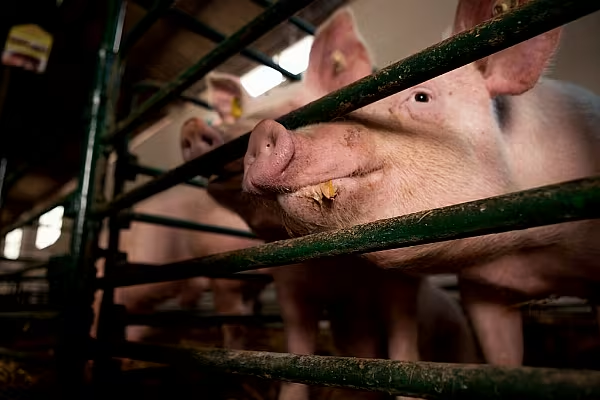China will raise import tariffs on most pork products next year, the finance ministry has said, after the world's top producer rapidly expanded domestic production and reduced its needs for imports.
Tariffs for most favoured nations will return to 12% on 1 January, from 8% currently, according to a ministry statement.
China lowered its tariffs on frozen pork in 2020 from 12% to 8% as the country faced soaring domestic meat prices in the aftermath of a devastating disease outbreak.
Imports surged to a record and remained at high levels through the first half of the year, even as the hog herd recovered and prices fell below production cost by the third quarter.
'Secure Supplies And Stabilise Prices'
"Adjusting rates in a timely manner can help secure supplies and stabilise prices in the domestic market by reasonably using the international market," said Zhu Zengyong, researcher with the Chinese Academy of Agricultural Sciences.
The higher rates will further slow imports from top exporters like the United States and Spain that have already dropped sharply in recent months.
"Any increase in tax makes it more challenging to exporters," said Joel Haggard, senior vice president for the Asia Pacific at the US Meat Export Federation.
Read More: New China Import Rules Bring Headaches For Food And Beverage Makers
October pork arrivals fell by 40% on the prior year to 200,000 tonnes, though imports in the year to date have only slipped 8% on a year ago to 3.34 million tonnes, according to customs data.
Elsewhere, France has signed an agreement with main export customer China to ensure pork trade can continue even if an outbreak of African swine fever (ASF) occurs, potentially providing a blueprint for European countries threatened by the pig disease.
News by Reuters, edited by ESM. For more Supply Chain news, click here. Click subscribe to sign up to ESM: European Supermarket Magazine.











